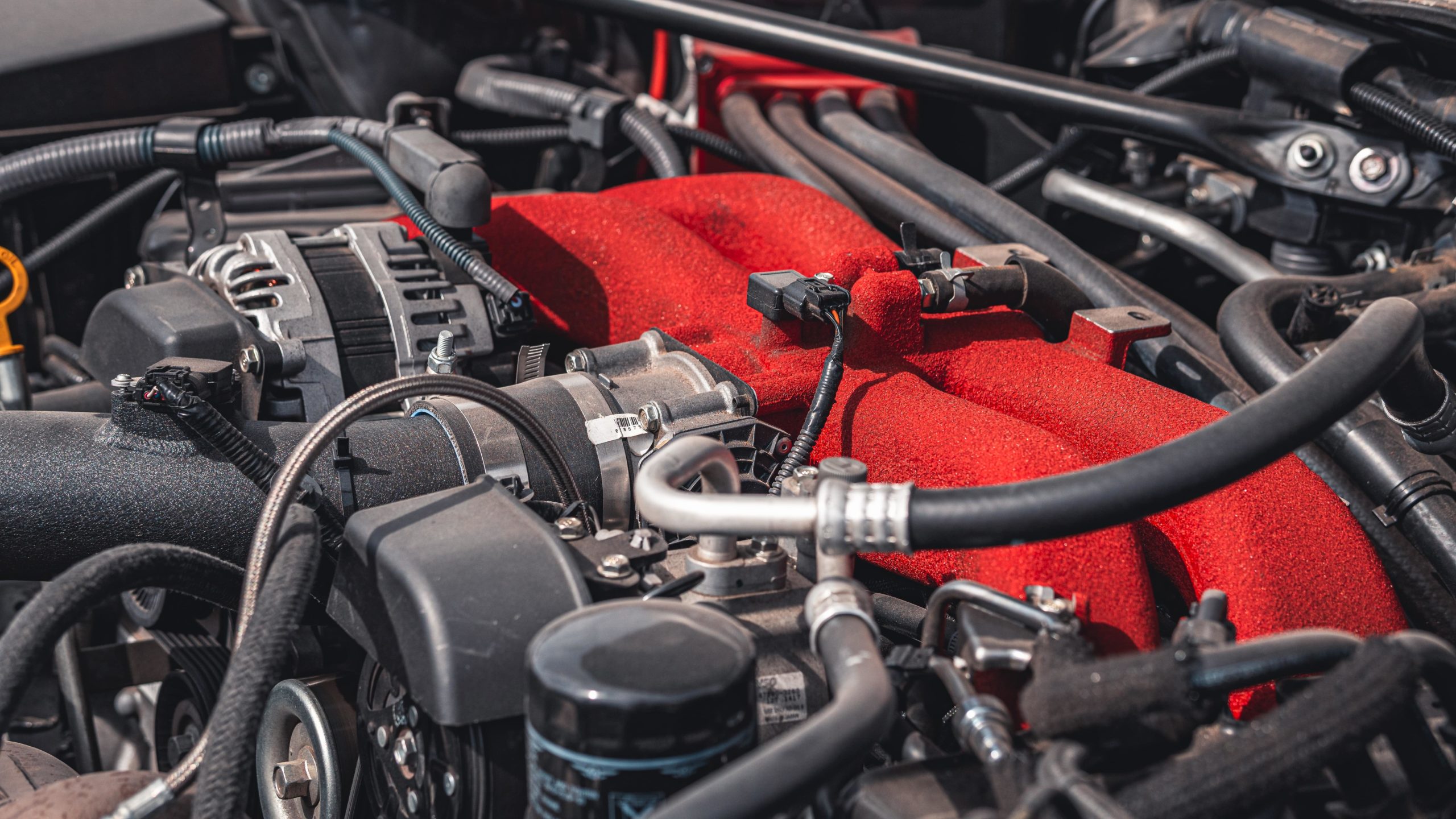In This Article
Key Points:
- Dealerships sell warranties on used cars that can cover systems like the engine, transmission, air conditioning, and more.
- Whether a dealership warranty is worth it depends on the cost, what the plan covers, and its restrictions.
- Endurance is our pick for the best extended warranty for used cars.
One benefit of buying a new car is the factory warranty that automatically covers repairs and replacement costs within a given period. Just because you’ve preferred a used car doesn’t mean you can’t enjoy a warranty – you might have some factory warranty left on a used car, plus you can get an extended warranty.
Read on to learn about your options for dealership warranties on a used car and find out if one is worth it.
Our Top Pick
After reviewing 20 companies, we’ve determined that Endurance is our preferred option for extended car warranties.
- Unlimited Miles for Cars Under 20 Years
- Maintenance Coverage Available
- Salvage or Rebuilt Cars Are Covered
- 24/7 Roadside Assistance
- Direct Administrator of Claims
Should You Get a Dealership Warranty on a Used Car?
If a used car dealer offers you a warranty on a car, chances are it’s a third-party vehicle service contract. That doesn’t mean it’s a bad thing. But you should be aware of some limitations with warranties from used car dealerships:
- Few plan options: You might only have one or two plans to choose from at the time of purchase.
- Restrictions on covered repairs: Some independent used car dealership warranties require you to visit that exact dealer location for covered repairs.
- High potential cost: Dealerships can mark up the cost of a plan how they want, and it’s hard to know if the dealer is giving you a good price.
Do Used Cars Come With Warranties?
Used cars don’t automatically come with warranties unless some coverage remains from the factory warranty. Automakers include bumper-to-bumper warranties that range from 3 years/36,000 miles to 5 years/60,000 miles. Powertrain warranties from auto manufacturers range from 4 years/60,000 miles to 10 years/100,000 miles. So, there’s a chance your used car could have coverage from the factory remaining.
Besides that, some states require used car dealers to warrant their vehicles for a short time. California requires buy-here, pay-here dealers to provide a 30-day/1,000-mile warranty, for example. Some other states have a three-day grace period. But in most cases, used cars don’t automatically include a warranty besides any remaining factory coverage. The buyer’s guide on a used car will tell you exactly what’s included with the vehicle.
All states have lemon laws that apply to used cars. But these aren’t warranties. Used car lemon laws apply if the dealer can’t fix a major mechanical issue after multiple attempts or after a certain amount of time.
Used Car Warranty Options
A used car dealer isn’t the only place you can find a warranty for a pre-owned vehicle. Here are a few details on your main options:
1. Certified Pre-owned Car Warranty
Where you can get it: Franchised dealerships
Buying a certified used car is a common way to get a used car warranty. Certified pre-owned vehicles (CPO) are a few years old and well cared for with low mileage. Many of these vehicles were leased once or used in a fleet.
Certification often includes an inspection plus a mechanical tune-up. After certification, franchised car dealers extend the car’s warranty beyond the manufacturer’s initial bumper-to-bumper warranty. A common certified pre-owned warranty provides one more year of bumper-to-bumper coverage.
Certified pre-owned vehicle warranties often include extras like roadside assistance, trip interruption reimbursement, and rental car coverage. Coverage may or may not require a deductible. Because the original vehicle manufacturer backs this warranty, your used vehicle can be serviced by any vehicle brand’s franchised dealership.
You can only buy a certified pre-owned vehicle at that brand’s franchise location. For example, a CPO Ford is only available at a Ford dealership.
Independent Dealer Certified
There’s something else to be aware of. Some independent or non-franchise dealers have their own type of certified pre-owned program. These cars are not certified by the actual auto manufacturer. You’ll have to check the details of each program to see what certification means.
Usually, the car has been through an inspection and a basic tune-up. One example is Carvana Certified. These vehicles go through a 150-point inspection and have no reported accidents.
These certification programs may only offer a short warranty or none at all. For example, Carvana Certified cars come with a mechanical warranty for 100 days/4,189 miles. This is completely separate from the original manufacturer warranty. Independent dealers can’t extend the car’s original factory warranty like franchise dealers can.
2. Buying a Used Car With an Unexpired New Car Warranty
Where you can get it: Franchised dealerships and independent dealers
Buying a used car with a remaining new car warranty is another way to get a used car warranty. Technically, you’re getting a new car warranty. This option allows you to take advantage of the original manufacturer’s warranty for servicing and repairs. Unlike certified pre-owned and extended car warranties, you don’t have to pay deductibles for new car warranties.
However, you should first ensure that the original warranty is transferable to second owners. While most bumper-to-bumper car warranties are transferable, long powertrain warranties can sometimes be restricted to first owners. For example, Hyundai, Kia, Mitsubishi, and Genesis offer 10-year/100,000-mile powertrain warranties on new vehicles. But this term is shortened to 5 years/60,000 miles for secondary owners.
That aside, you should also check the expiration date of the warranty. Keep in mind the warranty begins on the in-service date when the car was originally sold. Don’t base your decisions on the model year of the vehicle. A 2023 model-year vehicle could be sold anytime from the fall of 2022 to sometime in 2024 if the car sat on the lot.
3. Extended Car Warranties and Vehicle Service Contracts
Where you can get it: Franchised dealerships, independent dealers, and online providers
Besides CPO warranties and remaining factory warranties, you can get extended warranties or vehicle service contracts from a variety of places. Old vehicles with high mileage or defects and those without certification can also have coverage.
You have a huge range of options in this category. For instance, some policies include everything covered by a bumper-bumper warranty, while others cover only specific components. Most extended plans cover roadside assistance, rental car coverage, and trip interruption, while some go the extra mile and provide maintenance services.
You should read the service plan carefully to know what’s covered by your warranty. It’s key to understand exclusions so you aren’t surprised if the warranty provider denies a repair.
Third-party warranty providers can either handle claims themselves or outsource customer service to another company. Our main recommendation, Endurance, is a direct provider, which means it handles claims itself.
Extended Warranty vs. Vehicle Service Contract
Automakers are the only entities that can offer true extended warranties. Third-party providers offer vehicle service contracts. These can cover virtually the same repairs as a factory warranty. The main difference is a third-party company is covering repairs.
Coverage Options for Dealership Used Car Warranties
Whether you shop from a franchise dealer or a third-party company, you have a few main options for coverage:
- Bumper-to-bumper/comprehensive: This type of plan covers almost any mechanical breakdown except for exclusions.
- Mid-level: A mid-level can cover multiple systems like the engine, transmission, drive axle, electrical system, brakes, suspension, air conditioning, and more. The plan will list the exact components covered in each system.
- Powertrain: A powertrain plan covers the engine, transmission, and drive axle. These systems power your car forward and can be very expensive to repair.
What a Dealership Warranty Doesn’t Cover
All warranties come with exclusions. Plans don’t usually cover regular maintenance or parts that are expected to wear out. So, while the brake system can be covered, brake pads aren’t. Similarly, a plan might cover components in the suspension system but it won’t cover shock absorbers, which are meant to be replaced after so many miles.
Other example exclusions are:
- Damage from accidents, the environment, misuse, or lack of maintenance
- Cosmetic repairs to paint, trim, upholstery, glass, etc.
- Pre-existing conditions
- Unauthorized repairs
Looking at the last point, extended warranties don’t cover repairs without authorization. Brand-name dealership warranties often only authorize repairs at that brand’s dealerships. Reputable third-party companies can cover repairs at any licensed facility. That said, some less-reputable used car dealerships may only authorize repairs at a certain mechanic. This warranty could be cheap, but you’re limited in where to take the car for coverage.
What You Should Know Before Buying a Used Car Warranty
Below are a few things you should know before buying a used car warranty:
- Check the manufacturer’s warranty expiry date – You should only buy an extended car warranty if the original manufacturer’s warranty has expired or is inactive. Most manufacturer car warranties provide three years or 36,000 miles bumper-to-bumper coverage and five years or 60,000 miles powertrain warranty. Used cars sold “as is” usually don’t have a manufacturer’s warranty.
- Read through the vehicle service contracts for used cars – You should read through the fine print of your used car warranty. You should know who is responsible for vehicle repairs and components included and excluded by the coverage.
- Expect higher premiums for old vehicles with high mileage – Used car warranties are more expensive than coverage plans for new vehicles. Third-party warranty providers primarily consider the age and mileage of the vehicle when determining the warranty costs.
- Compare warranty coverage options and quotes – Before signing a contract with a warranty provider, you should compare coverage options and quotes offered by different companies to find the best deal.
Average Monthly Cost of an Extended Car Warranty
The Bottom Line
Our Top Pick
After reviewing 20 companies, we’ve determined that Endurance is our preferred option for extended car warranties.
- Unlimited Miles for Cars Under 20 Years
- Maintenance Coverage Available
- Salvage or Rebuilt Cars Are Covered
- 24/7 Roadside Assistance
- Direct Administrator of Claims
Used Car Warranty FAQs
California requires “buy here, pay here” dealerships to provide a 30-day/1,000-mile warranty on major systems like the engine, transmission, brakes, and steering. This applies even if the customer didn’t know about the warranty. However, the law only applies to dealers who provide their own financing.
Advertiser Disclosure: Consumer Review Center might earn compensation from the companies featured on this page. This compensation could affect the placement, order, and visibility of products, but it does not affect the recommendations made by the editorial team. Not every company, product, or offer has been reviewed.
Related Resources

Is a BMW Car Warranty Extension Worth It?
A Platinum BMW warranty extension covers most major systems up to 7 years/100,000 miles while Gold and Powertrain Plus plans cover fewer parts.

Powertrain Warranty Coverage Guide
A powertrain warranty covers vital systems that move your car forward, including the engine, transmission, transfer case, and drive axle.

Extended Warranty for Cars Over 100k Miles
Learn what extended warranties for cars over 100k miles cover and how to find the best vehicle protection plan for an older vehicle.










